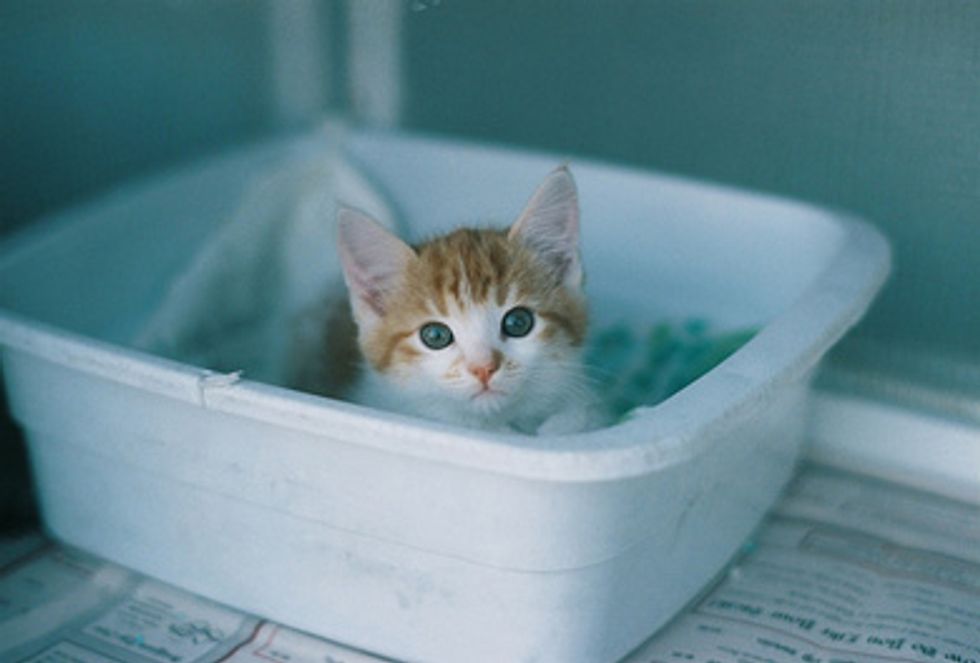Welcome to our weekly 'Ask a Vet from the SF SPCA' feature on 7x7.com. They've enlisted their Co-President, Dr. Jennifer Scarlett, to answer your questions every week. Got a question for Dr. Scarlett? Ask away in the comments!
Q: What is a good way to help insure my kitten doesn’t end up with bladder problems later in life?
A: If only cats and bladders could reconcile! Cats have a collection of lower urinary tract diseases (meaning problems in the plumbing after the kidney) known as FLUTD, feline lower urinary tract disease. FLUTDs are often life threatening because of what often happens as a result: the cat starts urinating outside of the litterbox and finds itself homeless or in a crowded shelter. Or, they stop urinating because they are blocked. So, it is well worth the effort to limit the chances of yourcat acquiring FLUTD. Problem is, we don’t really know what causes it, which we refer to as Feline Idiopathic. It could be caused by cystitis, urolithasis (bladder stones) and urethral obstruction— inability to urinate because the urethra is occluded with sludge, a stone or inflammation.
All three conditions can appear very similar. You’ll see your cat straining, urinating small amounts, urinating outside the litter box and often with blood in the urine. Although it can occur at any age, the risk factors for a cat to come down with FLUTD are being middle-aged, overweight, little access to exercise (this is sounding a lot like many human illnesses!) use an indoor litter box and are on a dry/kibble only diet. So first, don’t let your kitten age! Kittens are so cute it’s a shame to let them grow up anyway. Ok-now on to some things you can actually do:
Provide clean, fresh water at all times. You know how stale that glass of water by your bed is after one day? Be sure to refill your cat’s water dish with fresh water daily. If you are using a homeopathic or other remedy that is administered in the drinking water be certain to offer your cat the option of just plain water in addition.
Feed small meals and measure how much food you give. This will help keep your kitten from getting overweight and is easier on your cat’s gastrointestinal system. Supplement kibble with some fresh or canned food to increase the amount of water your cat takes in.
You should have at least one more litter box than cats in your house. The litter box should be in a quiet part of the house and kept incredibly clean. This means clean it daily. Since you will have at least two litter boxes be sure one of them is a plain, clay or clumping unscented litter. Some cats dislike scented litter many are fussing about the texture.
In general cats like routine and dislike stressful events like people and other animals moving in and out. Overall kittens and younger cats can deal with changes in their home with a bit more grace than older cats. Exercise. Have fun and play with your kitten/cat. In fact, think of getting two kittens so they can wrestle and hang out when you’re not around.
These recommendations are preventative for a young, asymptomatic cat. If your cat is not using the litter box or has a history of urinary problems there are more targeted recommendations based on the medical and behavioral history. As always, see your vet if this problem has already revealed itself.
While we can’t answer all of the questions here, please feel free to ask us during our Friday Twitter Ask the Vet Chat. If your animal’s problem is of an immediate nature, please call your vet or you can reach the SF SPCA at 415-554-3030 to make an appointment.





















